Landslide victory projected for South Korean opposition party in key parliamentary election
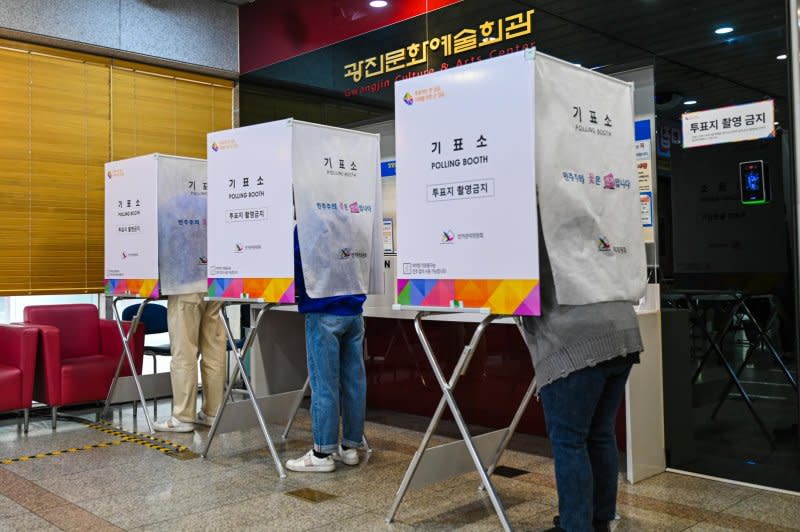
- Oops!Something went wrong.Please try again later.
SEOUL, April 10 (UPI) -- South Korean voters overwhelmingly cast their ballots for the opposition Democratic Party in parliamentary elections Wednesday, exit polls said, in a blow to the agenda of conservative President Yoon Suk Yeol with three years remaining on his single five-year term.
The Democratic Party and a sister party are expected to secure between 183-197 seats in the 300-member National Assembly, according to a joint poll conducted by broadcasters KBS, MBC and SBS. Yoon's People Power Party and affiliates would take only 85-100 seats, according to the poll.
Another poll by cable network JTBC projected that the Democratic Party and its allies would take between 168-193 seats.
The vote was widely seen as a midterm referendum on Yoon, who has been saddled with low approval ratings over his handling of a wide range of issues from sky-high housing prices and soaring food costs to concerns over the country's plunging birth rate, which is the lowest in the world.
Yoon's gaffe over the price of green onions during a visit to a supermarket last month has become a rallying cry of his opponents, who accuse the president of being out of touch with the concerns of everyday people.
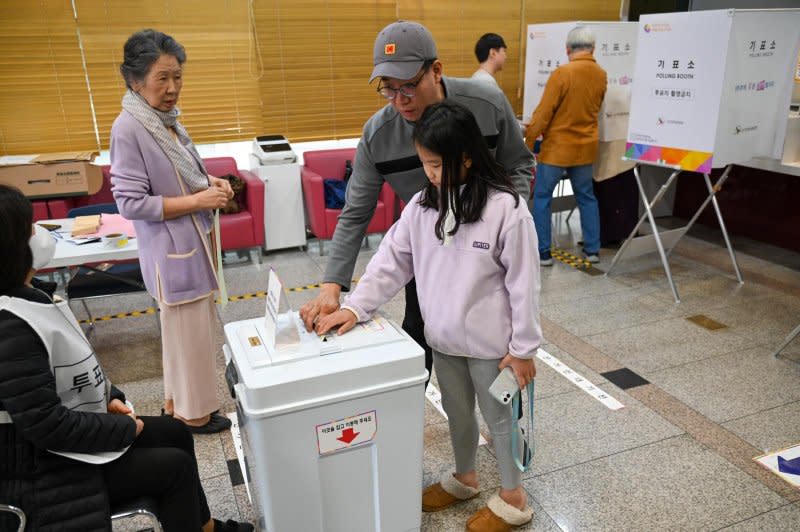
Yoon took office in 2022 after edging out his opponent, Lee Jae-myung of the liberal Democratic Party, by a razor-thin margin. A Democratic Party-led bloc has held 180 of the 300 seats in the National Assembly since 2020, however, severely hampering Yoon's domestic agenda.
Yoon has also been at the center of a standoff with striking trainee doctors that has dragged on since February, while his administration has been beset by corruption allegations, including a highly publicized scandal around First Lady Kim Keon Hee accepting the gift of a Dior bag.
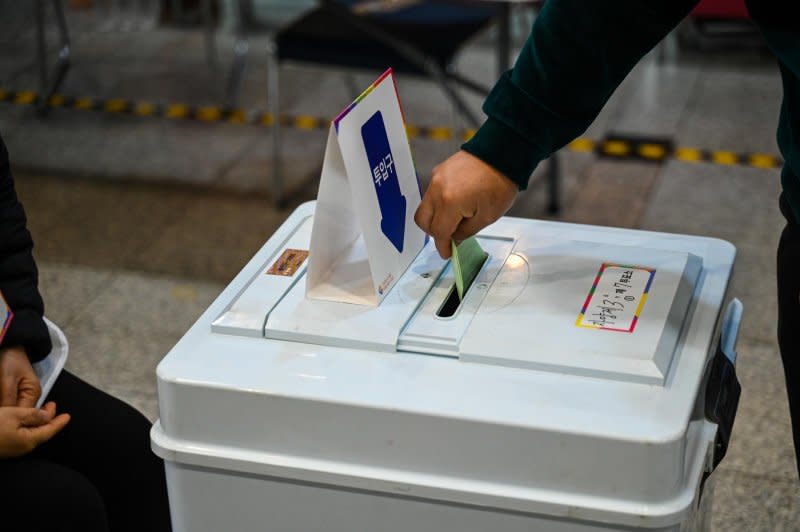
Opposition leader Lee Jae-myung is battling corruption accusations of his own and is currently facing trials over a range of charges including bribery.
Voters turned out in high numbers at 14,259 polling stations around the country on Wednesday after a record early voting period last week. When the polls closed at 6 p.m., more than 29.6 million people, or 66.9% of eligible voters, had cast a ballot, according to the National Election Commission. The figure was the highest turnout in 32 years for a general election.

Lines were long at a polling station in the Gwangjin District in the east of Seoul on Wednesday morning, as some voters opposed to the current administration stressed the importance of sending a message.
"It is an election for the National Assembly, but I think it is an evaluation of the president before the next presidential election," Kim Dong-houn, 44, said. "People are looking to choose someone whose policies will be more fair."
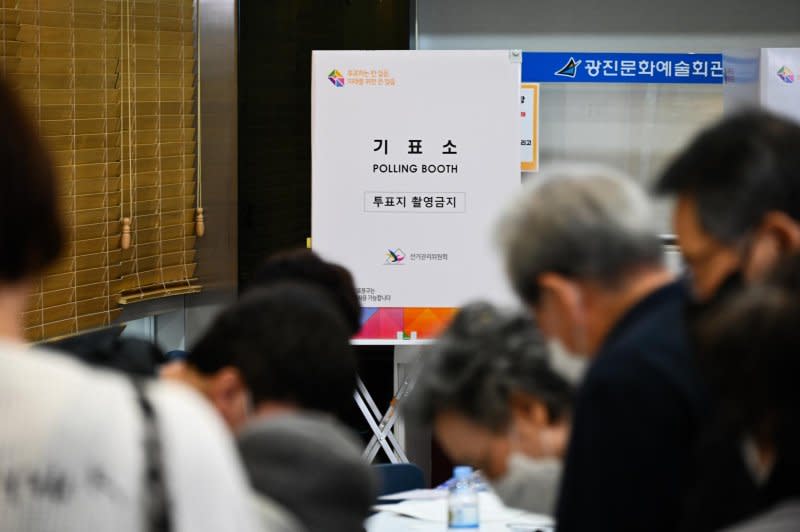
On the domestic front, Yoon has long been aiming to push through economic reforms that include taking on labor unions and reducing regulations on businesses. He has had more success establishing his agenda on the foreign policy front, where Seoul has taken a harder line against North Korea and strengthened security cooperation with the United States and Japan.
Yoon's supporters argue that he hasn't had a chance to implement his policies due to Democratic Party control of the National Assembly.
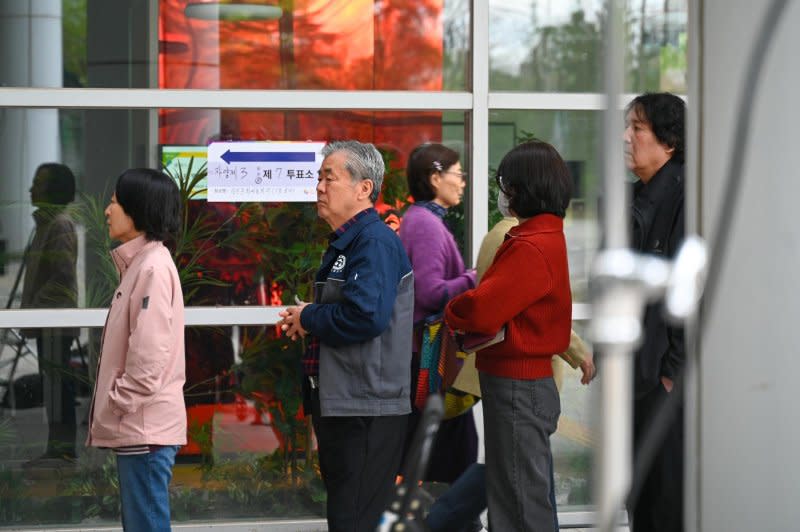
"I'm conservative so I really want to give Yoon more of a chance," Serena Ko, 36, said while waiting to cast her vote. "We should give him more power to make his policy these next three years."
People Power Party leader Han Dong-hoon expressed disappointment after the exit poll results were released.
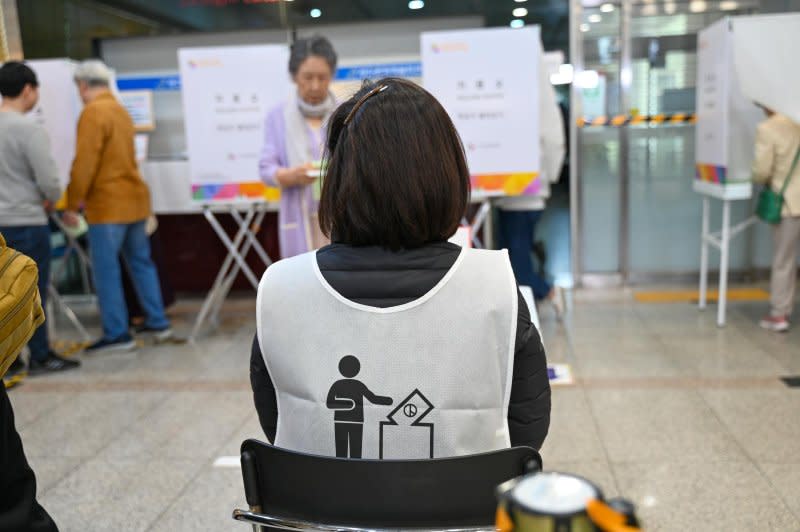
"The People Power Party did its best to do politics that uphold the will of the people, but the exit poll results are disappointing," Han told reporters at a viewing event with party members at the National Assembly.
"We will watch the results of vote counting until the end," he said.
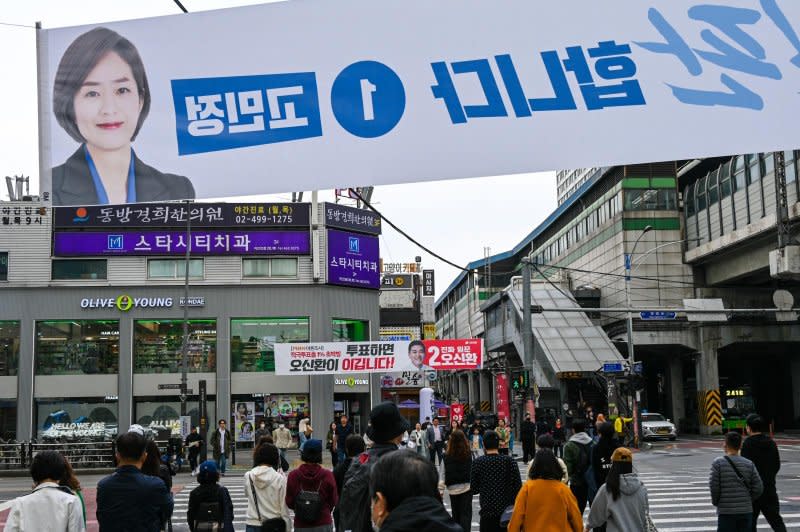
Official results are not expected to be released until early Thursday morning.

